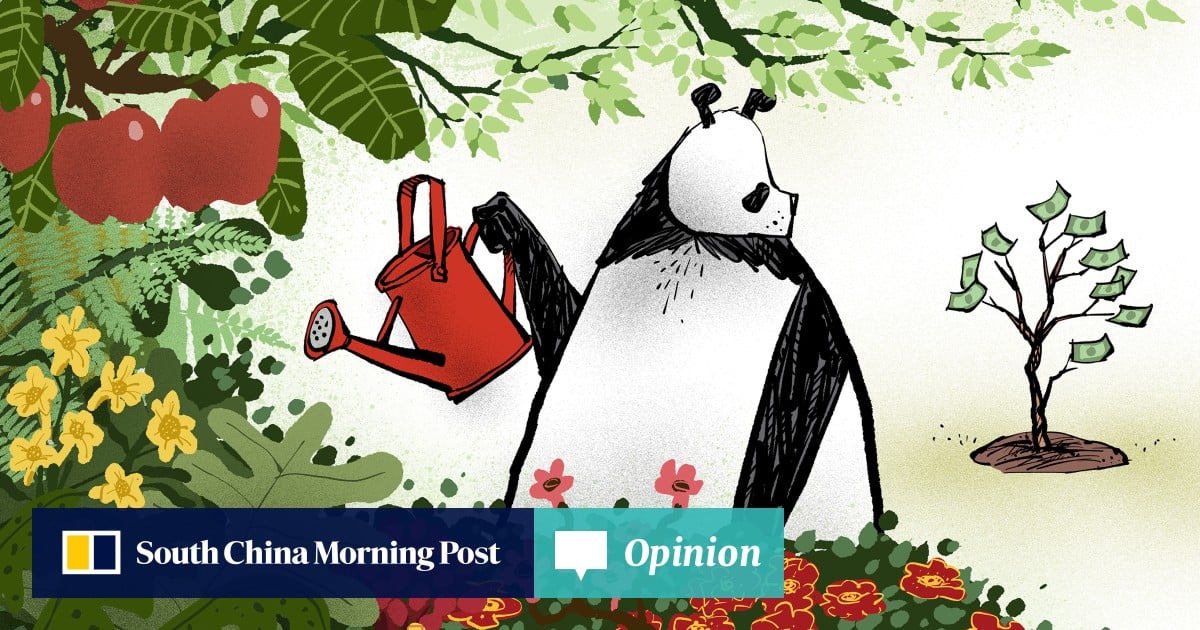As companies reopen and people return to eateries, value funds are expected to benefit from the improving economy. A restaurant in Manhattan Beach, California, is shown here.
Getty Images/AFP/PATRICK T. FALLON
Size of the text
The one-year anniversary of the pandemic-induced market crisis, which peaked on March 23, 2020, falls on Tuesday. Stocks have since returned to new highs. However, the year 2021 has brought new turbulence, as well as a shift in the front-runners. As investors turn to the future, a few sectors of the market—and the funds that invest in them—are likely to lead the way. However, don’t expect a smooth ride.
Growth companies, particularly those benefiting from consumers’ changing working and lifestyle patterns, drove last year’s gain. Most of the best-performing funds have focused on clean energy, disruptive technology, cannabis, and online retail since the bottom. Other growth funds with a broader range of investments, such as the
S&P 500 Growth iShares
The IVW exchange-traded fund (ticker: IVW) has likewise risen for the most of 2020.
Also check out:
Value stocks, on the other hand, have made a significant recovery in recent months as investors began to price in the positive effects of the reopened economy, the Covid vaccination rollout, and further stimulus. Since the beginning of the year, that dynamic has been more obvious as increasing interest rates and inflation concerns, which would discount the future value of growth stocks, have risen to the forefront of investors’ minds. So far this year, the
S&P 500 Pure Value Invesco
The ETF (RPV) has increased by 23.8 percent, while the S&P 500 has increased by 2.2 percent.
S&P 500 Pure Growth Invesco
The RPG ETF (RPG) fell 2.5 percent. Invesco ETFs’ head of factor and core equity product strategy, Nick Kalivas, believes value stocks will continue to rise in the coming months. “We haven’t fully reopened [the economy] yet, but the fiscal and monetary policies are still working in our favor,” he argues. “While value has performed admirably, it is still nowhere near the heights we saw earlier in the cycle.”
However, once the easy money in small-cap and value is taken off the table, Kalivas predicts that high-quality companies will re-emerge as the dominant force in the second half of the year. After the initial surge, economic growth will begin to slow, he believes, and this is when high-quality firms with robust balance sheets and organic earnings growth will shine. The
S&P 500 Quality Invesco Invesco S&P 500 Quality Invesco S&P 500
ETF (SPHQ) and ETF (SPHQ)
MSCI USA Quality Factor iShares
The ETF (QUAL) might be a good way to get some exposure to the organization. The sentiment is echoed by Gene Goldman, chief investment officer of Cetera Investment Management. Pent-up demand from consumers will support robust earnings growth in 2021 as the recovery broadens. Even though valuations may drop, he predicts equities to climb around 10% this year. Over the last few months, Cetera Investment has been overweight value and cyclical sectors like industrials, minerals, and energy.
Subscribe to our newsletter Review & Sneak Peek Every weekday evening, we summarize the day’s most important market news and explain what’s likely to matter the next day.
Investors should avoid sectors including consumer staples, utilities, and real estate that could be harmed by higher interest rates, according to Goldman, while remaining bullish on financials. The
Financial Select Sector SPDR is a mutual fund that invests in the financial sector
(XLF) has risen 40.7 percent in the last five months, outperforming the S&P 500 index by over 26 points. Still, Goldman believes there is room for greater gains, as banks normally profit from a steepening yield curve, higher rates, and an improving economy. Despite this, he sees a lot more obstacles in 2022, including increased debt, possible tax hikes, and higher rates. In the next three to six months, Cetera Investment expects to begin lowering its exposure to value and cyclicals in anticipation for a more cautious 2022. Investors should seek growth in alternative techniques that are less connected with stocks, according to Goldman. “The stock market loves positive shocks,” he says, “but those surprises will start to fade quickly.” Evie Liu can be reached at evie.liu@barrons.com.
Continue reading




